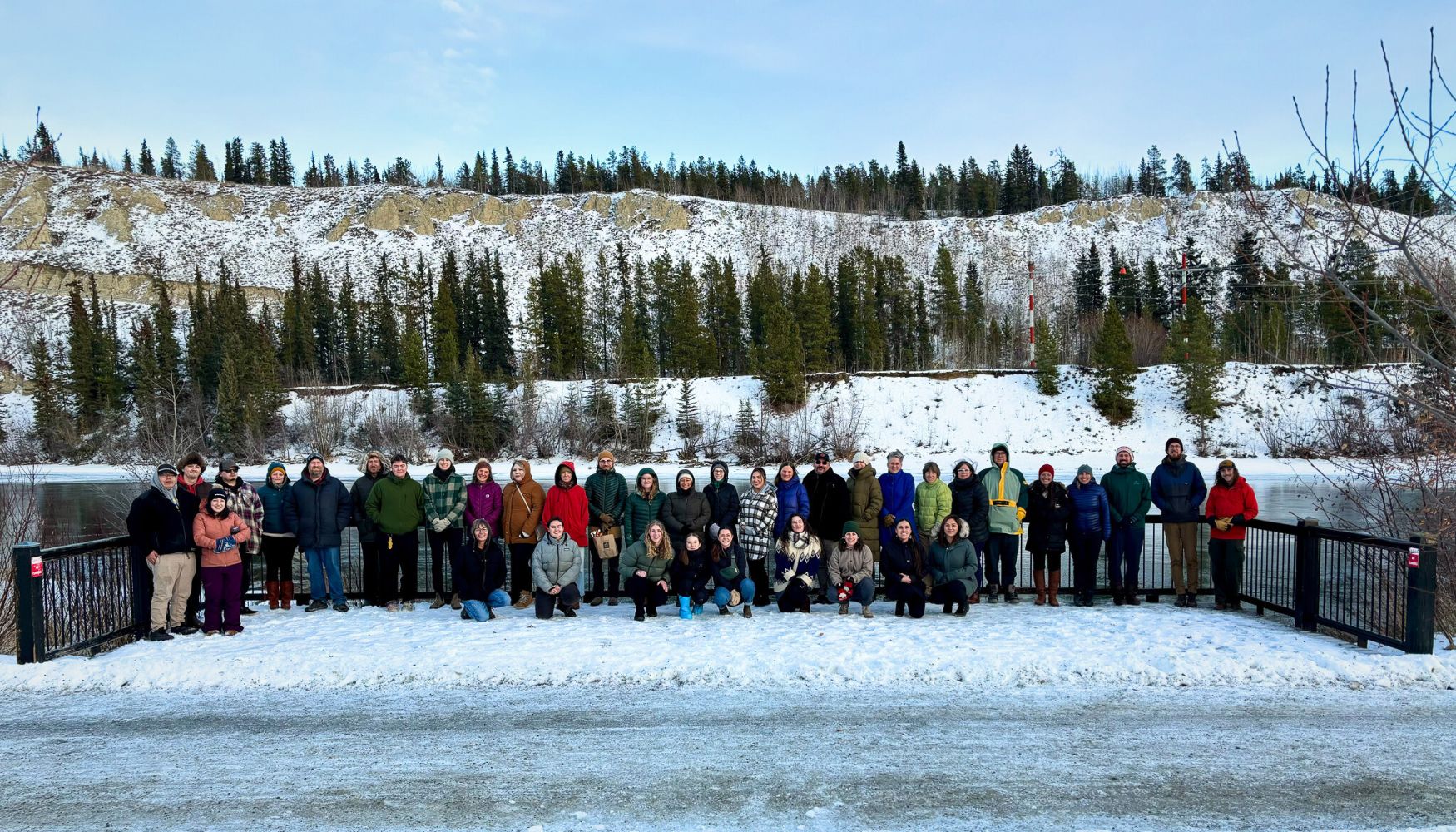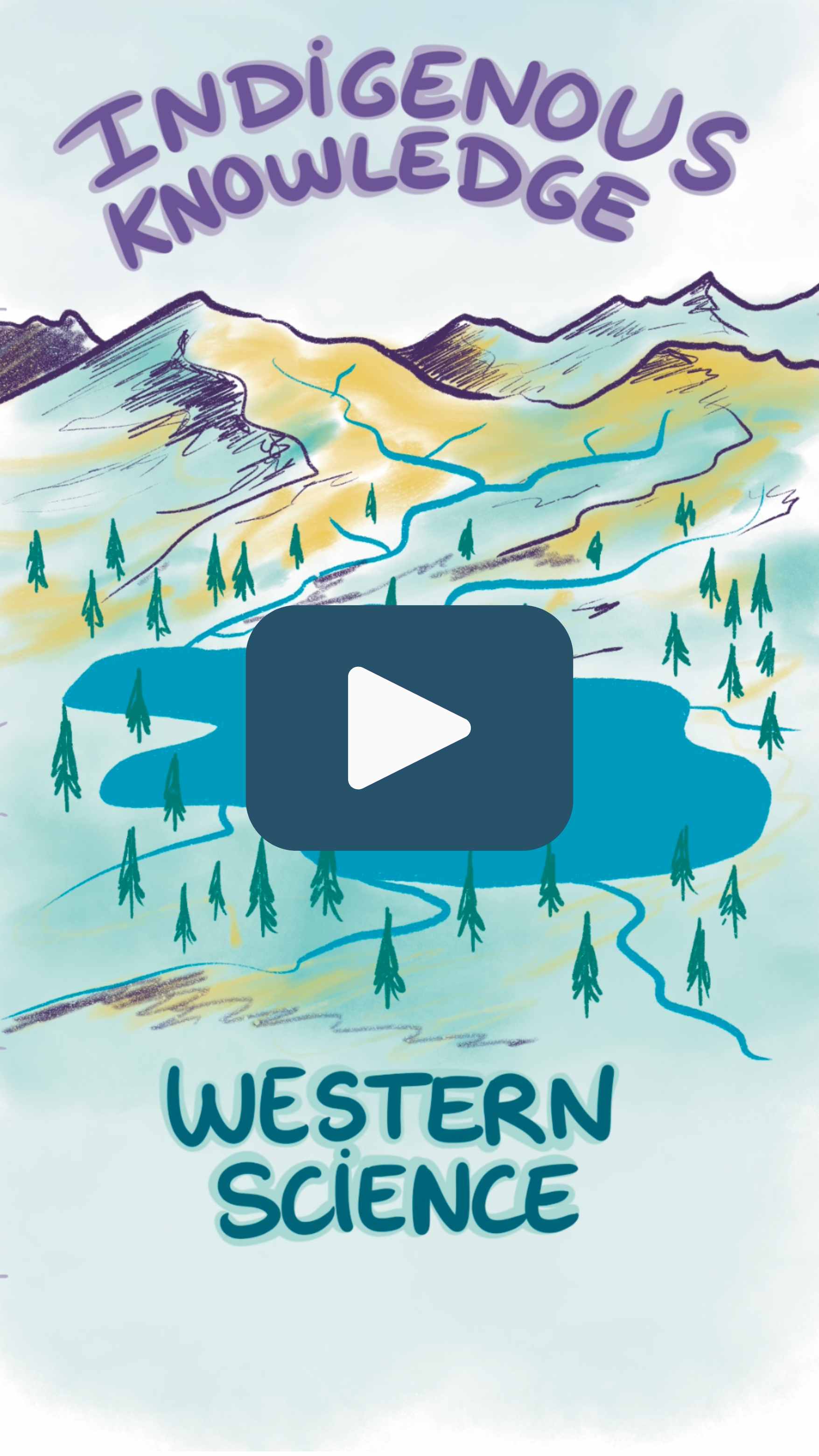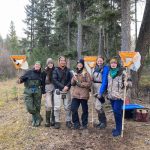WHY A YUKON LAKES MONITORING INITIATIVE?
The Yukon is a vast territory with numerous creeks and rivers that are environmentally, socially, and culturally important to people and wildlife. Current surface water quality monitoring efforts by the Government of Yukon are centred around 15 stations across the whole of the Yukon that are monitoring streams and rivers. A recent evaluation of the network design highlighted lake monitoring as a significant knowledge gap for the territory and led to a collaboration with Living Lakes Canada.
PROJECT TIMELINE
PHASE 1: Yukon Lakes Overview Project (April-September 2023)
Commissioned by Government of Yukon
The overarching objective of the Yukon Lakes Monitoring Overview Project was to understand the current and historic lake monitoring efforts and explore the possibility of a coordinated lake monitoring approach in the Yukon.
Listening to the diverse perspectives of project participants and analyzing the findings led to an overarching vision to implement a coordinated territory-wide lake monitoring network where Indigenous Knowledge and Western science are interwoven. This vision is supported by eight recommendations (read the Yukon Lakes Monitoring Overview report) and further sub-recommendations that describe potential pathways to implement long-term lake monitoring that supports the protection of lakes for future generations.
PHASE 2: "Celebrating The Lakes" Gathering, Whitehorse (December 12-13, 2023)
Led by Living Lakes Canada with financial support from Government of Yukon and RBC Tech for Nature

Celebrating The Lakes participants gather outside the Kwanlin Dün Cultural Centre in Whitehorse, Yukon.
This event brought together staff from Indigenous, territorial, and federal government along with environmental organizations and academia for 1.5 days of workshops, presentations, and meaningful dialogue about the health and importance of lakes in the Yukon. This celebration continued conversations started in Spring 2023 around community-based lake stewardship.
A ‘Sharing Back’ Report was produced which summarizes what was shared at the Celebrating The Lakes gathering. This report also outlines how project participants envision the Yukon Lakes Monitoring Initiative moving forward, including specific visions and actions.
Access the report or download a PDF version here.
View the Animated Videos
If you’d like to learn more about the discussions that took place at the Celebrating The Lakes gathering, check out the three animated videos on lakes monitoring, climate anxiety experienced by youth, and the collaborative relationship between Indigenous Knowledge and Western science.
Moving Forward Through Local Community Capacity Building
Living Lakes Canada in partnership with Yukon Parks and the Water Resources Branch of the Yukon Government delivered a two-day Lake Monitoring Workshop to First Nations Guardians and Government staff along with Yukon Parks staff in Whitehorse on July 9-10, 2024. This comprehensive workshop equipped participants with the theoretical knowledge and technical skills necessary to steward and monitor their local lakes. Participants spent the first day in the classroom learning all about lake ecosystems, water quality monitoring, and watershed impacts. On the second day participants spent a rainy day at Fox Lake getting hand on practice with water quality equipment and lake sampling protocols.
Yukon Lakes Virtual Roundtable
Living Lakes hosted a half-day virtual event in February 2025 to facilitate knowledge sharing on current lake projects and ongoing research across the Yukon and transboundary watersheds. Building on the momentum from our 2023 Celebrating The Lakes gathering and the resulting recommendations, this event inspired further collaboration and deepened our understanding of Yukon lakes.
The event included speakers from Carcross/Tagish First Nation, the Dena Kayeh Institute, Yukon University and the University of Ottawa, University of Toronto, L'Université Laval, and Parks Canada and Brock University, as well as a sneak peak at the Government of Yukon’s upcoming Water Data Portal! Read the blog on the event here.
THEMES FOR LAKE MONITORING
Nine main themes emerged throughout Phase 1 of the project.
- Theme 1 - Changes in lake landscapes: Participants mentioned noticing changes around lakes over the past several years including changes to water levels (and more frequent/intense flooding), increased water temperatures, and changes in fish populations.
- Theme 2 - Relationships with people, land, and water: Building relationships with people and the land and water are key elements to successful environmental monitoring programs. This involves showing respect by spending time in the communities and on the lands that we are trying to protect.
- Theme 3 - Transboundary collaboration: Due to the geography of colonial borders and First Nations traditional territories, the Yukon is a region that requires collaboration across many governments including Alaska, British Columbia, Northwest Territories, Yukon First Nations and transboundary Indigenous Nations and Inuvialuit.
- Theme 4 - Proactive actions: Participants highlighted the importance of taking action and making decisions for land and water before negative environmental impacts appear. Waiting for detrimental impacts to occur before acting is inappropriate.
- Theme 5 - Land Guardian programs: Indigenous-led Land Guardian programs were mentioned by participants as a possible opportunity to expand the capacity of lake monitoring because often, Land Guardians are already out on the land monitoring and visiting vast areas. The role of Land Guardian programs in a lake monitoring network across the Yukon can also support the more equal recognition of Indigenous ways of knowing in lake monitoring.
- Theme 6 - Education: The need for more education and awareness of the impacts of climate change and human activities was raised by participants, with a focus on empowering youth and generating opportunities for intergenerational knowledge sharing.
- Theme 7 - Communication: Effective communication was highlighted as the key to developing strong relationships between individuals, communities, and organizations, especially in the context of lake stewardship where there are shared interests but a diversity of worldviews and approaches. Effective communication facilitates transparency and accountability which in turn promotes trust and credibility in relationships.
- Theme 8 - Jurisdictional overlaps: Overlapping jurisdictions between First Nations governments, municipal governments, and territorial governments brings confusion and barriers, but also opportunities in decision-making. Overcoming these barriers involves discovering what Indigenous self-determination means in the context of environmental decision-making and working collaboratively based on shared values of environmental stewardship.
- Theme 9 - Indigenous Knowledge and Western science: Indigenous Knowledge and Western science can collaboratively inform the lake monitoring efforts. It was noticed that interweaving of knowledge systems is highly supported, yet it is not practiced widely around lake stewardship in the Yukon at this time.
Four main themes emerged throughout Phase 2, the Celebrating The Lakes gathering:
- Relationship Building: The importance and value of building relationships was at the forefront during Celebrating The Lakes. This includes not only strong relationships between one another, but also with the water and the land.
- Hope for the Future: The strong youth voices at the event set the tone as one of hope and resilience for the future. Knowledge is power, so education and opportunities for youth to get involved in protecting their environment can help turn climate grief into action. A need for action and passion for change was felt across sectors and generations.
- A Shared Connection to Water: We all rely on water and want it to be healthy, accessible, and sustainable for future generations. The way forward is in recognizing these similarities rather than focusing on differences.
- Grounding Work in Indigenous Knowledge: Grounding all work in Indigenous ways of knowing, doing, and being in practice, and not just in theory, was echoed throughout the presentations, discussions, and ceremony. This will require not only listening, but hearing one another to work across diverse knowledge systems and cultural practices.
PROJECT BACKGROUND
The Yukon Lakes Monitoring Initiative is building on innovative practices developed by Living Lakes Canada over the years, such as the Columbia Basin Water Monitoring Framework as well as the Local Indigenous Knowledge and Values Framework, which was co-developed with Upper Nicola Band for the Foreshore Integrated Management Planning project on Nicola Lake.
Program activities are guided by our Yukon First Nation Advisor and by various Yukon First Nations communities participating in the program. The First Nations Principles of Ownership, Control, Access and Possession (OCAP®), as well as community-specific knowledge protocols, will be upheld in all activities related to gathering and sharing knowledge.
CONTACT
If you have any questions regarding this program, live in the Yukon and have concerns about your local lakes, or are interested in participating in the protection of lakes in the Yukon, please contact us at yukonlakes@livinglakescanada.ca.

News and Updates
Connecting Through Water: Insights from the Yukon Lakes Virtual Roundtable – Living Lakes Canada, Mar 25 2025
Yukon Lakes Virtual Roundtable (recording of live session) – Living Lakes Canada, Feb 27 2025
Confluence of Knowledge: Yukon lake stewards gather for Celebrating The Lakes – Living Lakes Canada, Jan 17 2024







